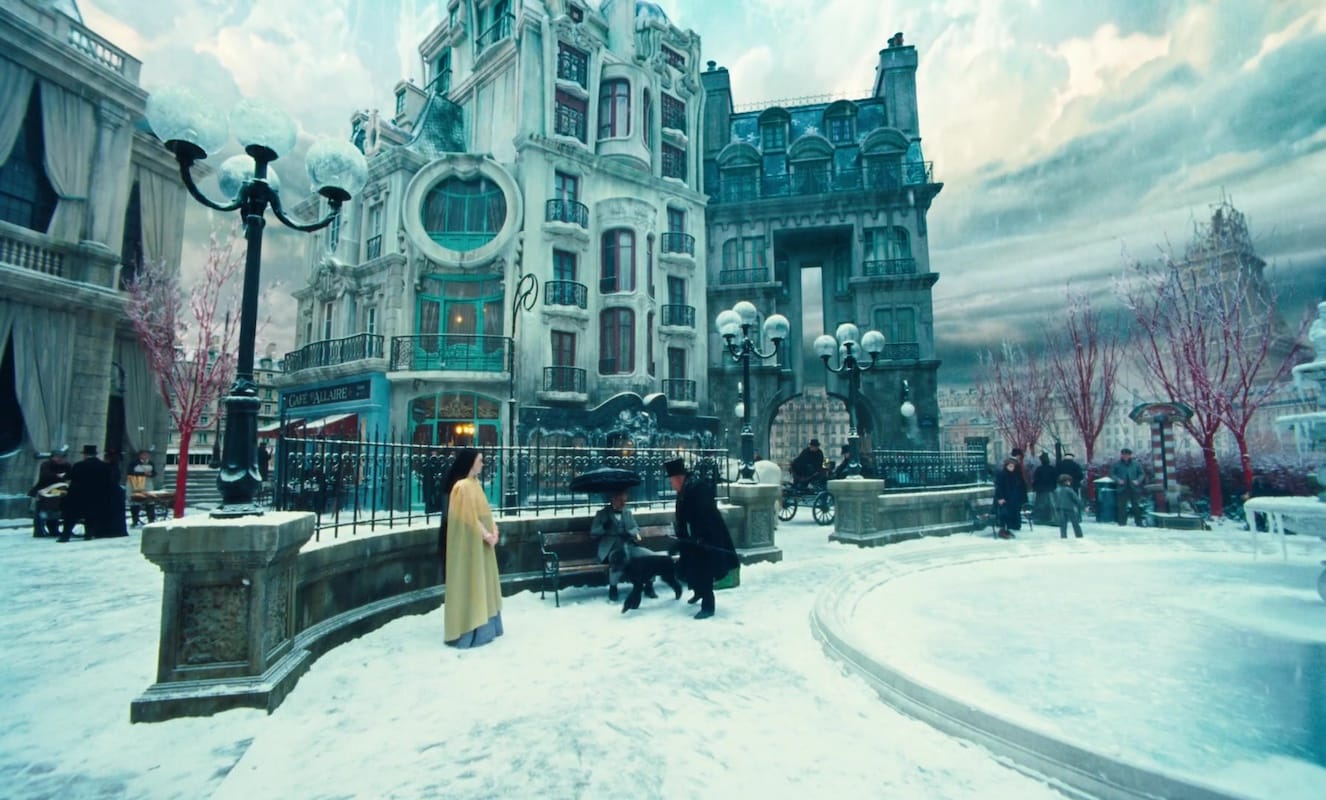
I’m glad films like Poor Things are still being made. I’m also happy to see that it has won numerous awards and that it is a box office success. The production design is amazing as are the costumes. The use of a fish-eye lens in some scenes is highly functional and a great find. It is a bit unfortunate that the storyline is a bit flimsy and that, like so many films these days, it is overlong. At various moments I found myself losing interest and checking the time for how much longer it would go on.
Poor Things is set in Victorian London and tells the story of Bella Baxter, played by a phenomenal Emma Stone, a young woman who commits suicide by jumping off a bridge, the reason for which will be revealed towards the end of the film. She is rescued by a mad scientist, Godwin Baxter, played by Willem Dafoe, who replaces her brain with that of her unborn baby, before resuscitating her. Bella Baxter thus has the mind of a baby inside the body of an adult. Like some of the hybrid creatures that populate professor Baxter’s gothic mansion, Bella is conceived as an experiment. Baxter recruits one of his students, Max McCandles, to document her intellectual progress as she transforms from an unruly child into a rebellious teenager. As she discovers her sexuality her linguistic capacities jump. Professor Baxter intends to marry her off to Max McCandles, but with his consent she runs off with the lawyer Duncan Wedderburn to explore the world. They travel from Lisbon to Alexandria and eventually end up in Paris where Bella finds employment in a brothel, having given away all of Wedderburn’s money to the poor, or so she thought. It is here that she discovers that sex isn’t always fun. At some point a terminally ill Godwin Baxter summons her back to London, where she follows in her maker’s footsteps.
The problem, or perhaps I should say my problem, although it isn’t really a problem, with Poor Things is that everything is on the surface. There are no hidden layers or perhaps I missed them, because from time to time I felt my attention waning. I know, Godwin Baxter is a reference to Mary Shelley, born Mary Wollstonecraft Godwin, author of Frankenstein. And whereas in Frankenstein the creature is an ugly, nameless monster, in Poor Things it is a beautiful, seductive woman, hence her name, Bella, with a fierce independent will. I also got Bella’s reference to Godwin as God and I understand that the poor things in the title are a reference to the men who fall for Bella.
I can wax lyrical about the final scene of La Dolce Vita, I loved how in Arrival the plot is mirrored in the film structure and Mulholland Drive still has me wondering. But Poor Things, like so many contemporary films, is a bit too obvious and too flat for me.
Having said that, Poor Things is a visual and stylistic treat and I don’t regret watching it. Had it been 90 or 100 minutes instead of 136 minutes I would probably have found it much better, also because it would have forced director Yorgos Lanthimos to make some tough choices.